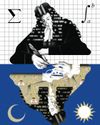
When Norman Mailer was inducted into the Army, in March, 1944, he was freshly married twenty-one-year-old Harvard graduate, a slight young man of five feet eight inches and a hundred and thirty-five pounds. In the previous few years, he had published some stories and written a play and two novels (one of them published, in a typescript facsimile, as “A Transit to Narcissus,” in 1978). Even as a student, he thought of himself as a professional writer, and from the day that Japan attacked Pearl Harbor, in December, 1941, he had wanted to write a big book about the war. He was sent for basic training to Fort Bragg, North Carolina, where many of the men were from Pennsylvania, the South, and the Upper Midwest. Mailer was from middle-class Jewish Brooklyn; he had landed in the great working-class Gentile world, and was eager to observe. He canvassed the recruits about their sex lives, taking notes on a yellow legal pad. (He discovered that many of them did not believe in foreplay.) Mailer knew that tough Jews served in the war, including criminals, louts, and bitterly determined, hardworking men, but he was without physical skills. He had never worked a thresher, or manhandled heavy goods into a truck, or tinkered with Dad’s jalopy.
This story is from the December 26, 2022 edition of The New Yorker.
Start your 7-day Magzter GOLD free trial to access thousands of curated premium stories, and 9,000+ magazines and newspapers.
Already a subscriber ? Sign In
This story is from the December 26, 2022 edition of The New Yorker.
Start your 7-day Magzter GOLD free trial to access thousands of curated premium stories, and 9,000+ magazines and newspapers.
Already a subscriber? Sign In

MEAN TIME
“Hard Truths.”

ENLIGHTEN ME
The secret beauty of mandalas.

THE BEST OF THEM
His was a genius for the ages. Will Gottfried Leibniz ever get his due?

DEATH CULT
Yukio Mishima’ tortured obsessions were his making—and his unmaking.

Prophecy
The night of Dev’s twenty-second birthday, he was invited to sit with the elders after dinner.

A TALE OF TWO DISTRICTS
Lauren Boebert and Colorado’s red-blue divide.

THE TIKTOK TRAIL
Andean migrants draw others to the U.S. with videos depicting themselves as living the American Dream.

LOVE AND THEFT
Did a best-selling romantasy novelist steal another writer's story?

OUR NEW TWO-FACTOR AUTHENTICATION SYSTEM
Our two-factor authentication system is expanding because text messages and e-mailed codes are becoming less secure. Also, we’re committed to making sure your log-in process is more of a hassle than it needs to be.

STILL PROCESSING
Why is the American diet so deadly?